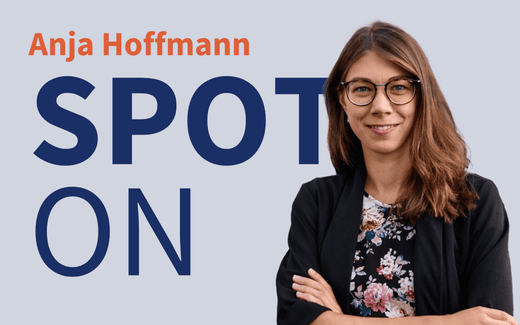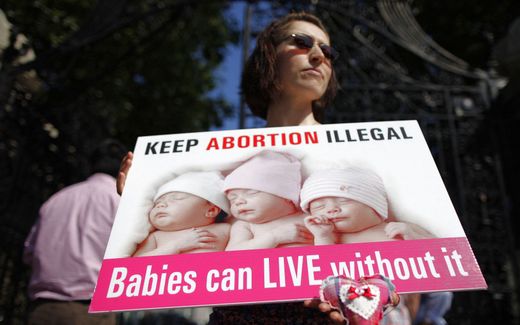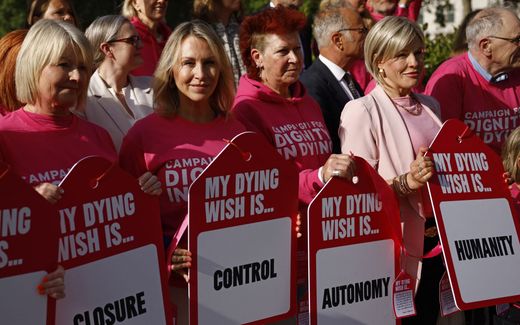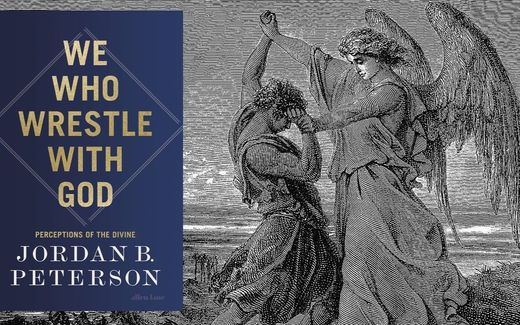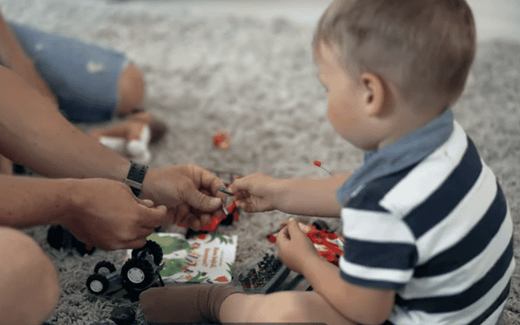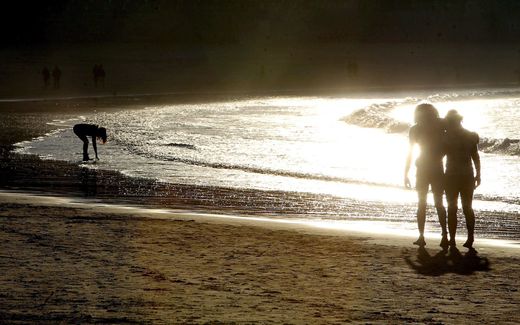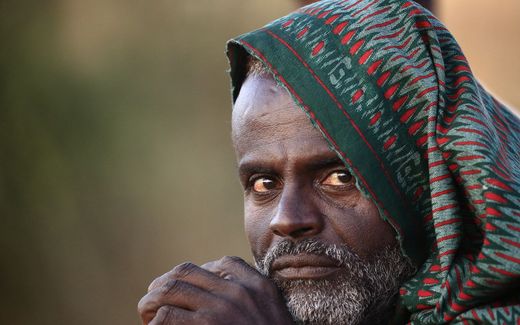Documentary: We live in a totalitarian world, but we don't see it
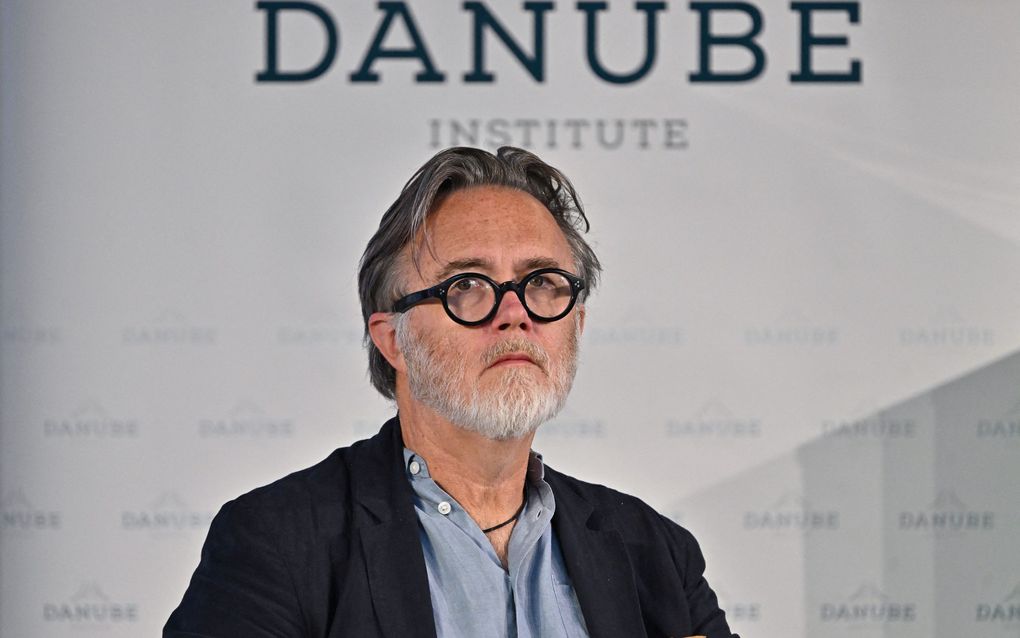
Rod Dreher. Photo AFP, Attila Kisbenedek
Opinion
Living a life in great comfort without anxieties or any form of suffering, who would not want that? Be careful, Rod Dreher warns in the documentary “Live Not by Lies”. Before you realise it, comfort becomes a cage.
What is the common denominator between the communist world right after the Second World War and today’s society? For many, this may sound like a strange question, but not for Rod Dreher, who is behind the new documentary “Live Not by Lies”, based on his book with the same title. According to Dreher, both societies are characterised by a substantial restriction of freedom. The movie goes as far as calling the current tendencies in, especially, Western societies “totalitarian”.
Several of pre-totalitarian symptoms are visible in today’s Western society.
The film, directed by Isaiah Smallman, refers to the well-known philosopher Hannah Arendt, who lived during the Second World War and personally experienced the rise and fall of the totalitarian Nazi regime at the time. She identified six developments in pre-war German society that allowed Adolf Hitler to seize power.
First, a loss of trust in hierarchies and institutions. Second, an obsession with ideology. Third, a value of loyalty over truth. Fourth, a widespread acceptance of propaganda. Fifth, a willingness to believe useful lies. And sixth, mass loneliness and social atomisation.
Abortion clinic
Worrying is that, according to the documentary, several of these symptoms are also visible in today’s Western society. For example, people strongly distrust the government, and conspiracy theories flourish, a legacy of the COVID crisis, and loneliness abounds in all layers of society. Media even speak about a loneliness epidemic.
Furthermore, postmodernism has eroded the concept of truth and blurred the line between facts and misinformation. The documentary says people are very willing to follow the “lies” that mainstream media and society present to them.
As an example, the case of Isabel Vaughan-Spruce is shown. This British pro-life activist was arrested several times for praying silently at an abortion clinic in her country. That shows, according to her, how difficult it is not to go with the mainstream idea that abortion is a human right. People outright refuse to believe the truth that unborn children are human, she says in the documentary.
Isabel’s story shows that you can even be arrested on suspicion of praying against abortion.
Once, Isabel attended a meeting where a doctor was asked when life began. He said: “As a doctor and scientist, I would like to say from conception. But if that’s true, the amount of human beings who have been intentionally killed is just so high that I can’t believe it’s true.” Instead of pursuing truth, Isabel explains, people willingly close their eyes to reality. And they widely accept the message that abortion is a human right.
In fact, everyone who speaks out against abortion is labelled as being against human rights. Isabel’s story shows that you can even be arrested on suspicion of praying against abortion.
Loyalty
So, is Western society on its way to totalitarianism? According to the documentary, it certainly is. The film stipulates that the parallels with earlier totalitarian systems are too obvious to ignore.
In fact, today’s “soft” totalitarianism is much more successful in creating a society that listens to the wishes of the government than old-fashioned hard totalitarianism is, says Anna Salyi in a reflection on the documentary. She is from Budapest and featured in Dreher’s book “Live Not by Lies”. Totalitarian regimes want total loyalty from their citizens by severing family ties and combating religion, for example.
However, in today’s society, families are falling apart and secularism is growing faster than ever before, seemingly without harsh pressure from the government. Instead of bonding with their relatives or church, people are becoming more individualistic and prone to follow the government line of thinking. Thus, they become vulnerable to soft totalitarianism.
During communist times, the government relied on people to spy on their neighbours, Salyi continues. However, that is no longer necessary today because of technology. “People are giving away extremely personal information more than willingly. Whatever communism was, whatever came afterwards is not really antagonistic to it.”
Wokeness
What makes people so vulnerable to these totalitarian tendencies? One of the big problems of society today is that people are afraid of suffering, says the documentary in its last episode. Westerners especially want to live a good life without pain and troubles. They want to have the freedom to follow all of their heart’s desires and think that that’s what will lead them to happiness.
The transgender movement tells doctors they have to provide children with gender-affirming care for therapeutic reasons.
Exactly that can be seen in the culture of wokeness, says Dreher in a reflection on his documentary. The transgender movement tells doctors they have to provide children with gender-affirming care for therapeutic reasons. It warns them that these children will suffer and end their lives if they don’t get treatment. That way, everyone is dragged along with the mainstream narrative.
Many people are not willing to go against the public opinion or what they believe is the public opinion, because they are afraid of the discomfort of awkwardness or of standing alone, Isaiah Smallman, the director of the documentary, says. And that, in itself, is already enough to pressure them into following the mainstream logic, no harsh government measures needed.
Meaning
Timo Krizka, one of the interviewees in the documentary, is someone who seems to have everything to make him happy. He can study what he wants, travel where he desires to go and do what he likes. You would say he is the perfect example of freedom and thus happiness.
Yet, something is missing in his life, he says. In his search for meaning, he discovers how his great-grandfather, who was a priest, suffered greatly for his faith. Yet, he lived a fulfilling life, more than Timo himself experiences. That’s when he discovers that the meaning of life cannot be found in unlimited freedom. “We think of these people through the lens of suffering and deprivation, but when we come to truly understand those who suffered for a higher purpose, we see that they believe that it is we who are deprived of wellbeing”, he says.
Extreme comfort is not good for human beings, Russian writer and dissident Aleksandr Solzhenitsyn once said. It makes us weak and vulnerable. If suffering comes, and we are unprepared to deal with it, it can plunge us into despair. Instead of growing through it, many people nowadays choose to numb and repress their pain with drugs or even to end their lives. Suicide rates are exploding because many would rather end their lives than lose their comfort.
People are willing to follow the masses and abandon critical thinking if they think that will protect them against suffering.
This vulnerability makes us easy to control. People are willing to follow the masses and abandon critical thinking if they think that will protect them against suffering. That happened in Prague under communist rule, too. People no longer had to think for themselves, but just needed to obey in exchange for “some material comfort”.
Prosperity
The most dangerous aspect of today’s society, Live Not by Lies says, is that we don’t realise that we are losing our freedom. We bathe in comfort and luxury, and the absence of concentration camps has lulled us to sleep. Czech dissident Ludek Bednar, who experienced the oppression of the communist regime after World War II, says: “In the past, we knew that the regime was wrong, but today it is more complicated, because we live in the illusion of freedom. If you don’t want to live by lies, you are in conflict with the mainstream society.”
Nothing purifies the soul as well as suffering does.
So, is it possible to avoid floating with the stream unconsciously? Yes, if certain things happen, Live Not by Lies says. First of all, people should accept that suffering is part of life and that it is what makes us human. “The object of life is not prosperity as we are made to believe, but the maturity of the soul”, Solzhenitsyn once said. And nothing purifies the soul as well as suffering does, the documentary emphasises.
Secondly, it is essential to stand up and raise your voice, advises Isabel Vaughan-Spruce in the film. “The question is, what am I doing now? There is a battle for life going on; there is a battle for truth going on. Am I willing to say something about it or do something about it?” After all, the documentary teaches us, “once people unite against lies and lose fear, change is about to come”.
Thirdly, Western society needs to better understand its history. If people know what happened in the past, they are less prone to follow all sorts of doctrines. Many embrace communism, says Anna Salyi to Rod Dreher, without knowing what that means, without realising that it was also communism that produced the gulags. Without knowing the past, it is even harder to go against the current, recognise totalitarian tendencies, and refute mainstream “lies”.
So, how bad is the situation?
Once you see some tendencies soft totalitarianism is it hard to unsee it. If that was the objective of the documentary “Live Not by Lies”, it has been a successful project. At the same time, the question might arise whether the situation is as bad as the film suggests.
Yes, there are attempts to silence people with different beliefs, as is shown in the cases of Isabel Vaughan-Spruce (who was arrested while praying at an abortion centre) and Päivi Räsänen (a Finnish MP who has been prosecuted because of tweets against Pride). However, these cases also show that the judicial system in Western Europe is still intact, and these people have been acquitted several times.
The current attention to issues around freedom of speech in Europe seems to be at least partly fuelled by voices from the United States. In contrast to many European countries, the US have a tradition of an individual right of freedom of speech, in which the government interference is limited. European countries, in most cases, have legislation in which freedom of speech is balanced with other rights. In certain situations, this might lead to court cases that, from a certain perspective, could be seen as disturbing, while on the other hand, they are part of a system of not only checks, but also balances that, in that form, simply does not exist in US legislation.
In addition, there are voices that speak out against transgenderism and abortion, and these opinions can be voiced quite freely. Yes, there might be a media storm around it that can restrain people. Still, there have always been those brave enough to stand up despite the controversies that could arise. Even more, the “progressive side” is greatly worried about a comeback of more conservative forces, as a report showed recently.
Nevertheless, the documentary serves as a good eye-opener. Regardless of the situation, it is always important to keep your guard up. As the documentary says, the “most dangerous tyranny we can fall under, the deepest pit of hell into which we can descend, is inside each and every one of us”.
Related Articles


